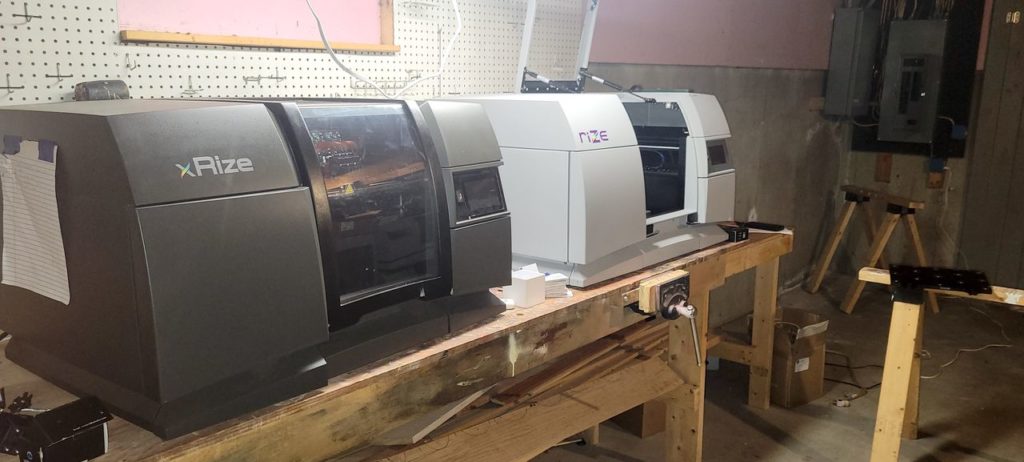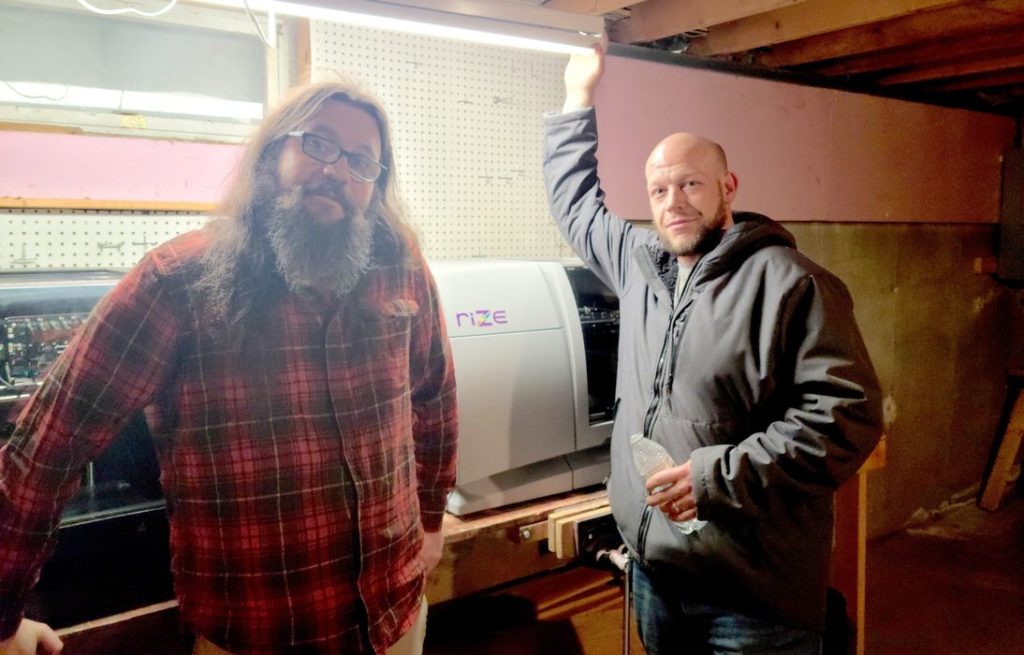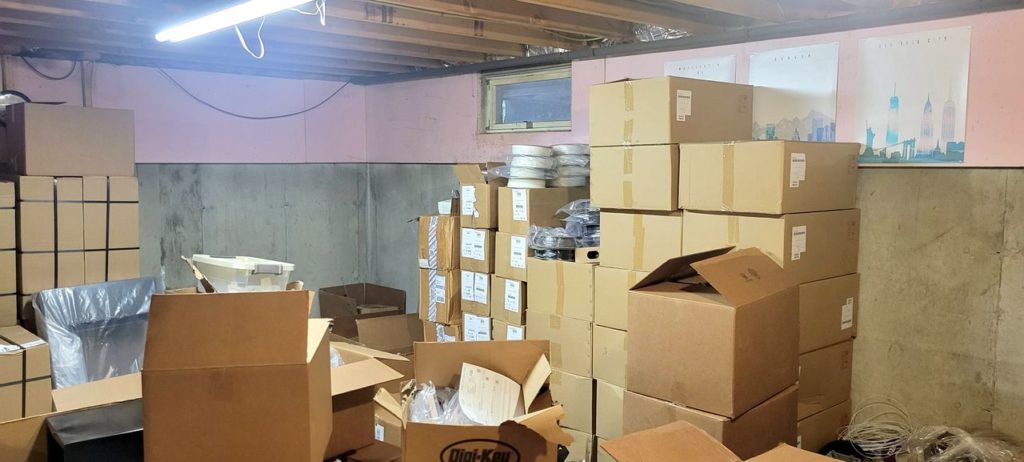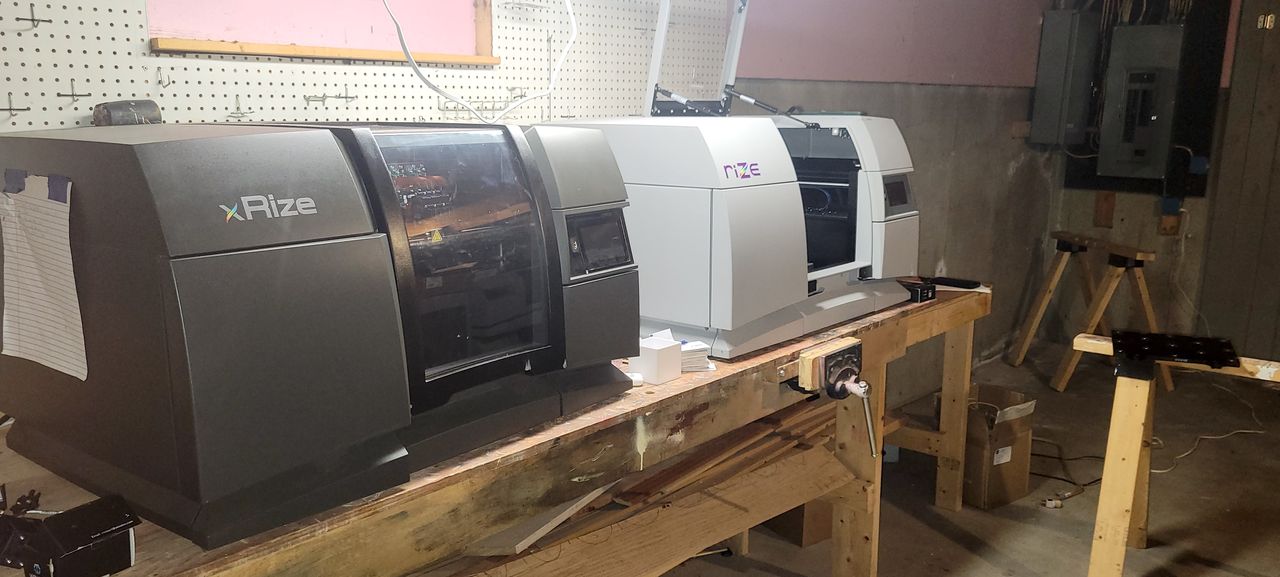
We learned of an interesting development in the RIZE situation.
If you’re not familiar, RIZE was a fascinating 3D printer manufacturer that produced several 3D printers using a hybrid FFF and inkjet approach. The technology enabled the use of instant breakaway support structures, for example, because the inkjet could deposit a thin liquid inhibitor between the support material and the model material.
The technology also allowed for insertion of full color into FFF 3D prints by mixing inkjet colors. This was implemented in their XRIZE system.
However, it was all for nought, as the company ceased operating in 2021 due to financial challenges.
Speaking with RIZE founder Eugene Giller, I learned that his intention is to revive the technology in a less expensive form, but we haven’t yet seen this emerge. Giller also indicated his intention to support existing RIZE customers with the equipment and materials he obtained from the sale of RIZE assets last year from his new company, Palitra.

But now I’ve learned there is another operation currently working with RIZE equipment: Sindri 3D Printing. I spoke with Sindri’s Jack Horgan to find out more.
Fabbaloo: What is Sindri 3D Printing and how did it come to exist?
Jack Horgan: Sindri 3D Printing is a 3D printing service that’s in its final stages of formation. The company will be formed in Deleware, but, primary operations for the workshop will happen in Maine while every other aspect is remote. We will be focusing on supporting are the automotive industry at launch.

Fabbaloo: It’s our understanding that you came into possession of a number of XRIZE 3D printers after the company closed. Can you tell us how that happened?
Jack Horgan: The printers and materials obtained for the project came from an eScrap recycling facility. These items were listed for auction and then subsequently not sold. The lot included XRIZE and RIZE One printers as well as several boxes of Rizium filaments of every variety. In addition that that, other boxes included replacement parts, start-up kits, and office supplies.
Fabbaloo: Is it Sindri’s intention to sell or operate these devices as a service?
Jack Horgan: I have contractors working to repair and launch these printers to be used as a service. We plan on keeping as many as possible for operations.
Fabbaloo: Will Sindri 3D Printing offer support services to existing XRIZE operators, given that you have access to spare parts and other resources?
Jack Horgan: Supporting others with these machines was not initially part of our action plan. After a conversation with Eugene, supporting others with RIZE machines out there is on our action plan following the repair of our machines. We were essentially told by him that replacement parts are available, but, only if ordered in large enough quantities for it to make sense for him to produce them in-house on his 20 XRIZE printers. He instead offered to have us just use him as a fulfillment service in the background instead of repairing our machines.
Fabbaloo: Will Sindri 3D Printing branch into other forms of 3D printing, given that the XRIZE resources are finite?
Jack Horgan: Yes. Given our unique situation, we have debt-free assets thanks to the failure of RIZE Inc and our next generation will not include Palitra following these initial interactions with Eugene. That being said, we aren’t sure which direction we plan on going in following our RIZE printers. Our rough plan is to make that decision using the data available to us related to the adoption of color printing specifically, general market trends, and available technologies on the market 18 months after launch or in preparation for Series A funding, whichever comes first.
So it appears there will soon be another option for existing RIZE 3D printer operators to obtain support for their equipment, and also another service to produce full color 3D prints on demand.

